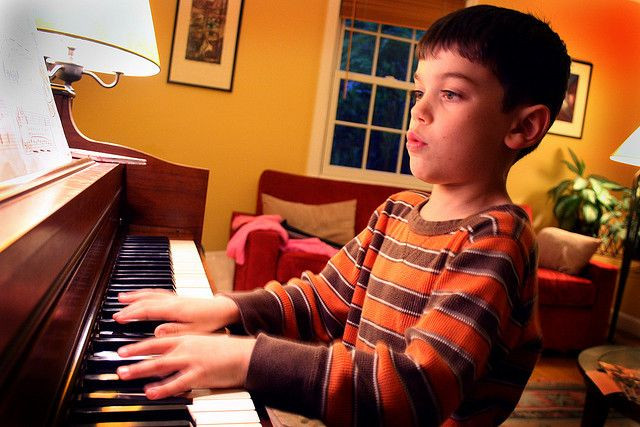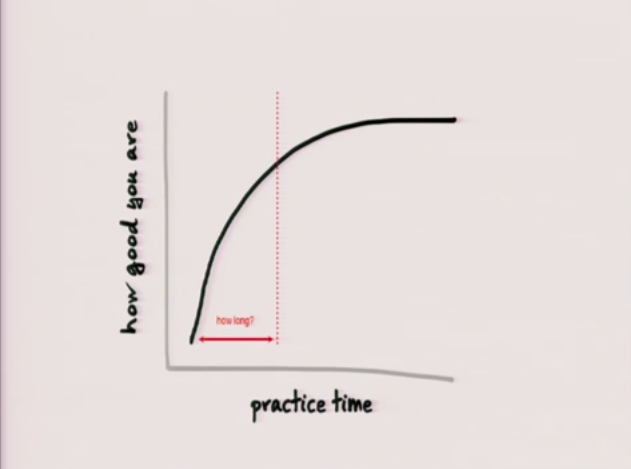How To Learn Anything: The 4 Stages Everyone Passes Through On The Road To Mastery

The world is full of untapped potential — gardeners whose thumbs never greened, guitarists whose fingers never blistered, chefs who couldn’t stand the heat. Amateurism is nice, as a hobby, but we want mastery. We want to be in control of the flower beds, the chord progressions, and the flambés. But expertise takes hours of practice. How will we ever know if we’ve ever arrived?
Psychology may offer some help, as knowing how to think about the skill you’re honing can go a long way toward helping you achieve mastery. The foremost hypothesis in the field is called the Four Stages of Competence. The idea was birthed in the 1970s by a man named Noel Burch, an employee of the famous business relations company, Gordon Training International. While Burch himself was no scientist, psychologists — chief among them being the famed Abraham Maslow — have found the four stages to reflect key ingredients for mastering just about any skill you can dream up.
The Four Stages
1. Unconscious Incompetence
Imagine you want to learn German. You like the sounds of the language but have zero idea what any of these alien, angry-sounding noises actually mean. So you check out a book on German from the library.
Here you are at the earliest stage of learning: You don’t know what you don’t know. It is also the last time before complete mastery that you will feel this comfort with speaking German (even if you don’t speak a lick of it). There is an entire ocean of verb tenses, syntaxes, vocabulary, culture, and idioms you know nothing about. You can’t even begin to imagine what you don’t know. You are blissfully ignorant.
2. Conscious Incompetence
So you’ve finished reading the first chapter of your German textbook. You’re clued into the broad strokes of the language, and suddenly all of your inadequacies have been laid out before you, on full display. There’s no turning back. You know what you’re up against, and you’ll forever carry the knowledge of what it takes to learn German.
If people ever quit a skill, it’s here. The challenge seemed insurmountable. There’s no way I can dedicate 10,000 hours to this, they think. And so, now carrying the heavy baggage of self-doubt, they give up.
3. Conscious Competence
The author and branding expert Josh Kaufman has a thing or two to say about conscious competence, the stage in which most mastery-seeking people tend to stay until they either give up the skill or die. The good news, according to Kaufman, is that getting here only takes 20 hours. In 20 hours’ time, you can pick up enough of the skill to feel a sense of accomplishment. Kaufman offers this graph to illustrate the 20-hour sweet spot:

This graph says that only a little bit of practice gets people a great deal of skill. But after a certain point, the returns start to diminish. It takes longer and longer for you to get any better at the skill. At 20 hours, your German is conversational (if the learning is immersive, most likely), but an additional 20 hours won’t double your proficiency. And so on, and so on.
In the conscious competence stage, you are aware of your strengths and weaknesses. You make concerted efforts to perform your skill. But for all your proficiency, you are still pulling the tiresome double duty of monitoring your performance while still trying to perform at the same time.
4. Unconscious Competence
You’re Keith Richards blindfolded. You’re Emeril Lagasse with a hand tied behind your back. You’re a German speaker.
Unconscious competence is the other shore, the bank on the opposite side of the vast river of conscious effort. All that practice has finally yielded dividends, and you can perform your skill without thinking; it comes “naturally” to you. The fourth and final stage is where experts call home. Even fine motor movements can be competently performed, unconsciously. Think of your ability to use a pencil or hold chopsticks — mastered skills you can’t unlearn if you tried.
Reaching the final stage is a pipedream for many. It’s a place where creativity can truly flourish, where your brain can turn effort off and let improvisation emerge. It’s the top.
What We Can Learn
Actually, that’s not entirely true. While the science is a tad slippery when it comes to a fifth stage, the logic is cogent. Think of it as “complacency” — the ultimate form of mastery.
When you’re complacent, you are so completely knowledgeable that you’re able to move freely between each of the four stages without sacrificing skill. When a novice guitar player (conscious incompetence) comes to you with a sour-sounding note, you’re able to pick up the flaws in his mechanics without hesitation. You are immersed in the skill but still able to come up to shallower waters if need be. You can step outside your role as master and guide from the point of view of a student.
The fifth stage, then, is where we really want to be. We want to know a subject so intimately as to communicate any pointer or tip in language a beginner would readily understand. Complacent masters remember what it’s like to learn. They empathize. The more we can tap into that psychology — the mind of someone who gives back the skill, not just taking it — the greater chance we have of striking the perfect balance as the all-knowing master who never stops learning.
Published by Medicaldaily.com



























